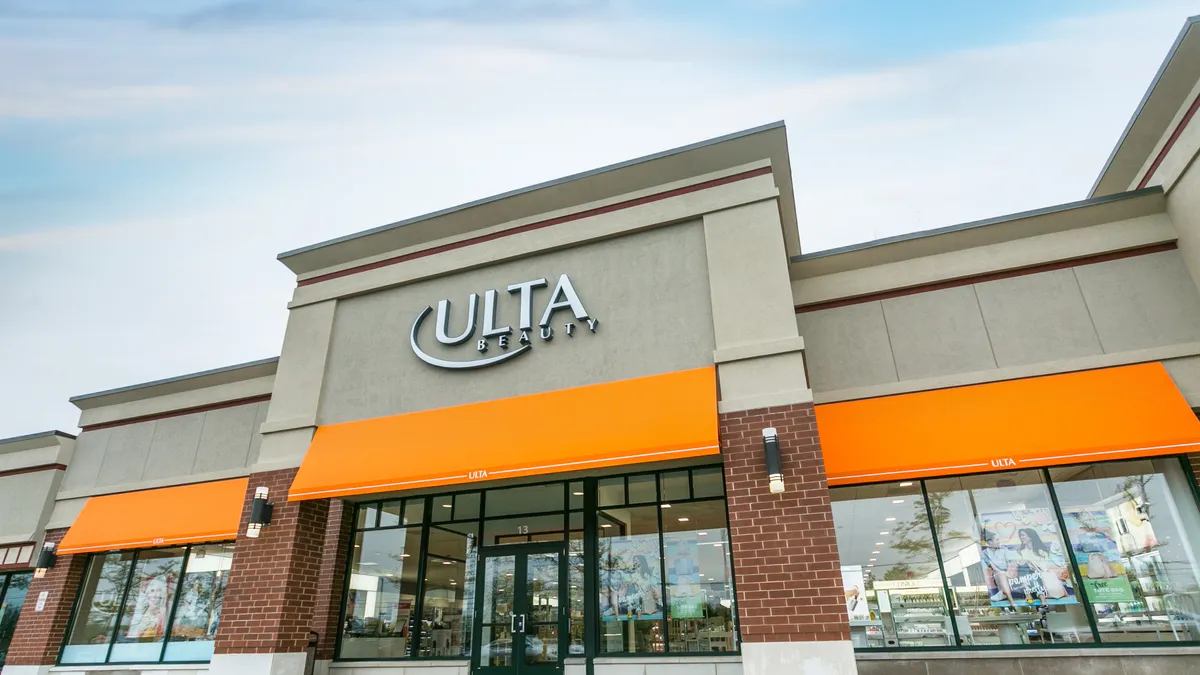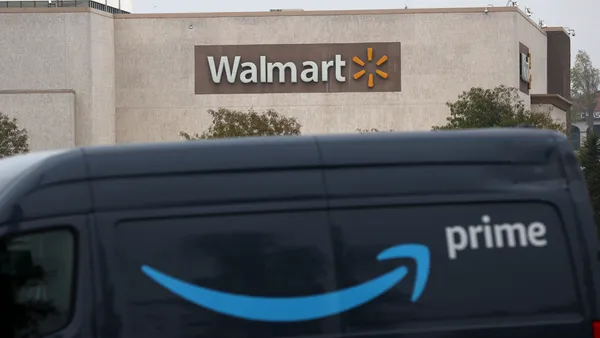Dive Brief:
- Ulta Beauty will evaluate its existing store fleet and future additions with omnichannel optimization as a top priority, said CEO Mary Dillon on a Thursday earnings call. "We’re looking at our store footprint through an omnichannel lens to ensure we’re strategically positioned to optimize share and profitability opportunities in every market," she said.
- Ulta put its second "fast-fulfillment center," a facility designed to bring shipping speeds down to two days, on hold in December, but reversed course last quarter after e-commerce started to boom. The Jacksonville, Florida warehouse will open before the end of 2020.
- The retailer said it is expanding its ship-from-store program to 100 stores "to increase shipping capacity and improve speed to guests, while also leveraging store labor and inventory." E-commerce orders increased 200% year over year in the second quarter — slowing somewhat when stores reopened — but growth stayed in the triple digits, said CFO Scott Settersten.
Dive Insight:
The pandemic has shaken up the e-commerce math for Ulta, causing it to weigh operations more heavily in store fleet design.
All Ulta stores were open by mid-July, but the company is looking to build on some of the trends the pandemic accelerated. Omnichannel at Ulta means buy online pickup in-store, ship from store fulfillment and no-contact, drive-up service.
Last month the cosmetics retailer announced it would close 19 stores and open 30 new ones. The company has reduced its new store target for this year from 75 to 30 in light of the pandemic. Optimizing the store fleet for these services would account for different elements than traditional location scouting for brick-and-mortar retail, and would change the way the company evaluates its existing retail assets.
Drive-up, for example, requires ample parking space and the right configuration to keep traffic flowing. BOPIS requires front-of-house staging space. And ship from store requires pack and ship space, along with proximity to e-commerce customers to optimize carrier rates. Plus, customer adoption of these in Q2 (the quarter in which stores were closed for the longest period) may be an indication of where omnichannel adoption will settle when the pandemic resolves.
But optimizing omnichannel is about more than service.
Ulta would like to encourage BOPIS and drive-up, because avoiding parcel carriers greatly diminishes overall fulfillment cost — which has suffered from the fast shift in fulfillment channels. Gross profit as a percentage of sales dropped from 36% in Q2 2019 to 27% in Q2 2020.
Parcel carrier rates are a growing concern, too, among many retailers, as UPS and FedEx will levy hefty surcharges this holiday season, and USPS announced a temporary price hike.
"That’s another bit of a wild card that we’re balancing against," said Settersten. "But it’s a little too early to really be able to quantify what the impact on that is. I would say, in the big scheme of things, that’s a smaller item compared to some of the other headwinds they were dealing with now here in 2020."














